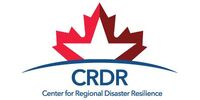Supply Chain Resilience
|
PNWER and the Center for Regional Disaster Resilience have hosted a number of supply chain resilience focused initiatives over the past decade. These have included analyzing supply chains, developing an action plan for catastrophic failure of a major bridge and focused on expediting the movement of goods and people across the border. Information on several of these projects can be found to the right.
|
Regional Supply Chain Resilience Project
The Center for Regional Disaster Resilience (CRDR) is working with key private sector organizations and the Puget Sound Regional Catastrophic Planning Team (RCPT) to implement a series of stakeholder identified strategies to improve regional supply chain resilience. The goal of the project is to develop a supply chain resilience working group made up of public/private stakeholders to provide input and advise the region on issues related to supply chain resilience. Click here for the final report Through this process, the working group will develop a mutual aid memorandum of understanding for Puget Sound ports to share resources during a catastrophic event; develop a regional strategy for supplying Community Points of Distribution for needed post-disaster government provided commodities; and create a strategy for coordinating between the government led recovery efforts and the private sector to more rapidly restore commerce and the economy. Supply Chain Resilience Workshop, WA Homeland Security Region 6, November 2010, The Region 6 Critical Infrastructure Protection Workgroup recognized the need for an informative Workshop that allowed private, public, and non-profit sector members to receive briefings on supply chain issues and information sharing. The Workshop agenda was designed by regional stakeholders and addressed issues that have surfaced during previous events. A number of prior workshops and exercises have pointed to the need to identify and share best practices between public and private sector organizations. The workshop focused on the importance of supply chain resilience to manufacturing and the broader business community. Business leaders discussed supply chain and related continuity challenges and needs regarding business impacts, restoration decision-making, and potential areas of improvement. Click here for report Blue Cascades V In 2008, the exercise focused specifically on how the region will restore and continue to provide food, fuel and water after a catastrophic earthquake. Both the public and private sector were included in this exercise because a majority of critical infrastructure owned and operated by the private sector. To ensure the region can continue to provide these services it is necessary for the public and private stakeholders to work together. The exercise examined supply chain recovery after the initial event moving out of the life safety issues and transitioning from the response to recovery phase. Click here for report SR 520 Catastrophic Failure Planning In November 2007, he Washington State Department of Transportation (WSDOT) hosted a tabletop exercise with Seattle area local jurisdictions, businesses and other key stakeholder organizations to examine preparedness, response, and longer-term recovery issues associated with a catastrophic failure of the SR 520 Bridge. WSDOT was assisted in the development and conduct of the exercise by the Pacific NorthWest Economic Region, a state-chartered, cross-border consortium and facilitating organization for the Puget Sound Partnership for Regional Infrastructure Security. Click here for report |

